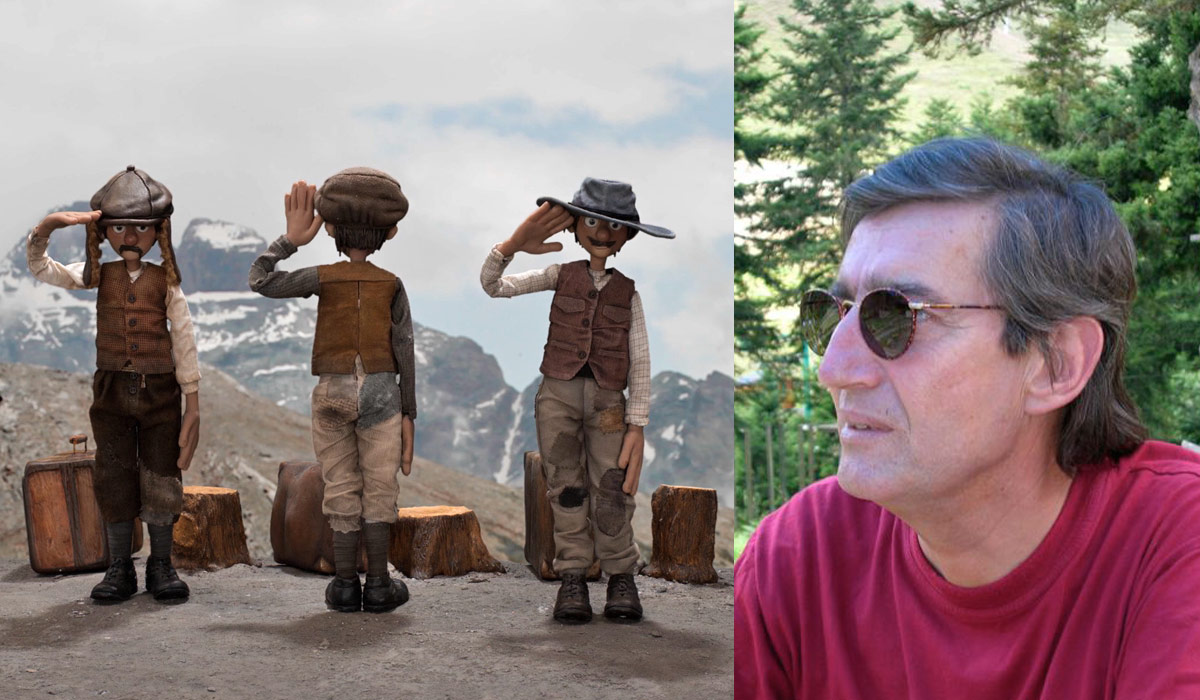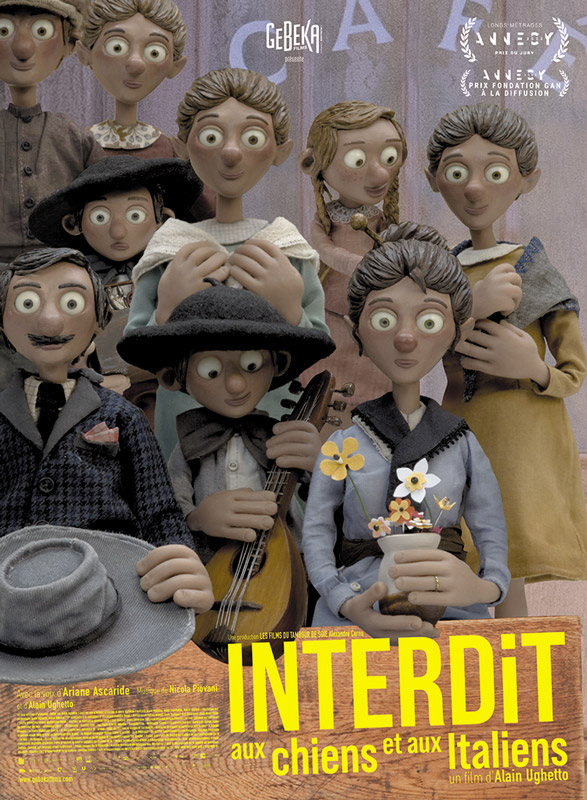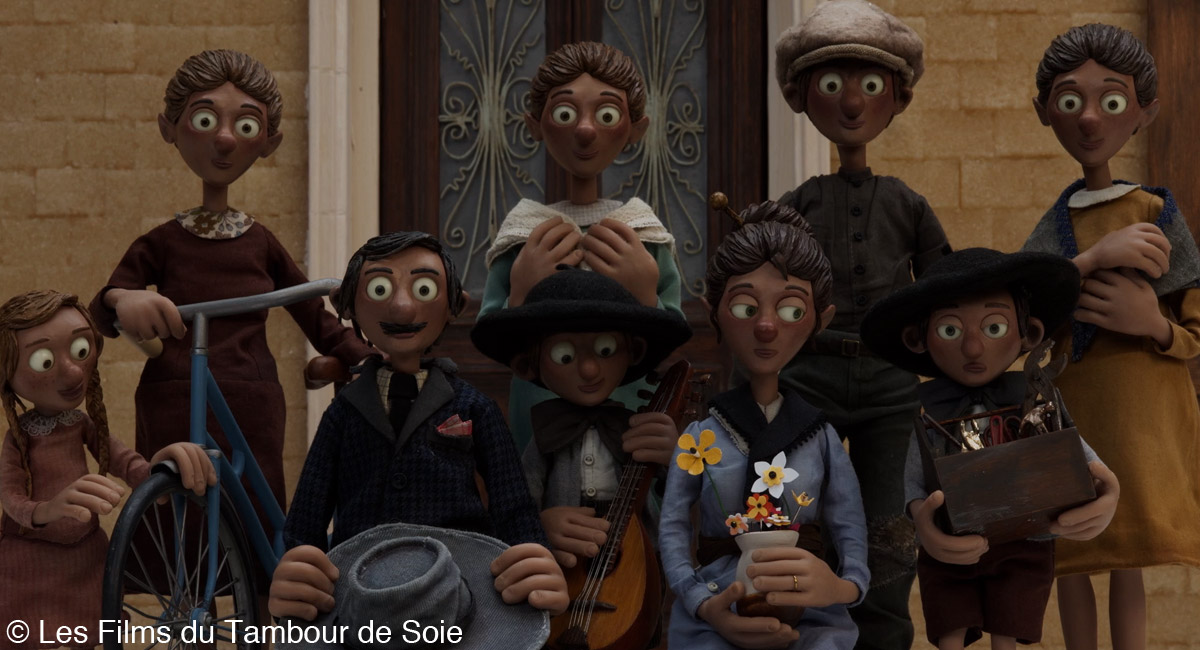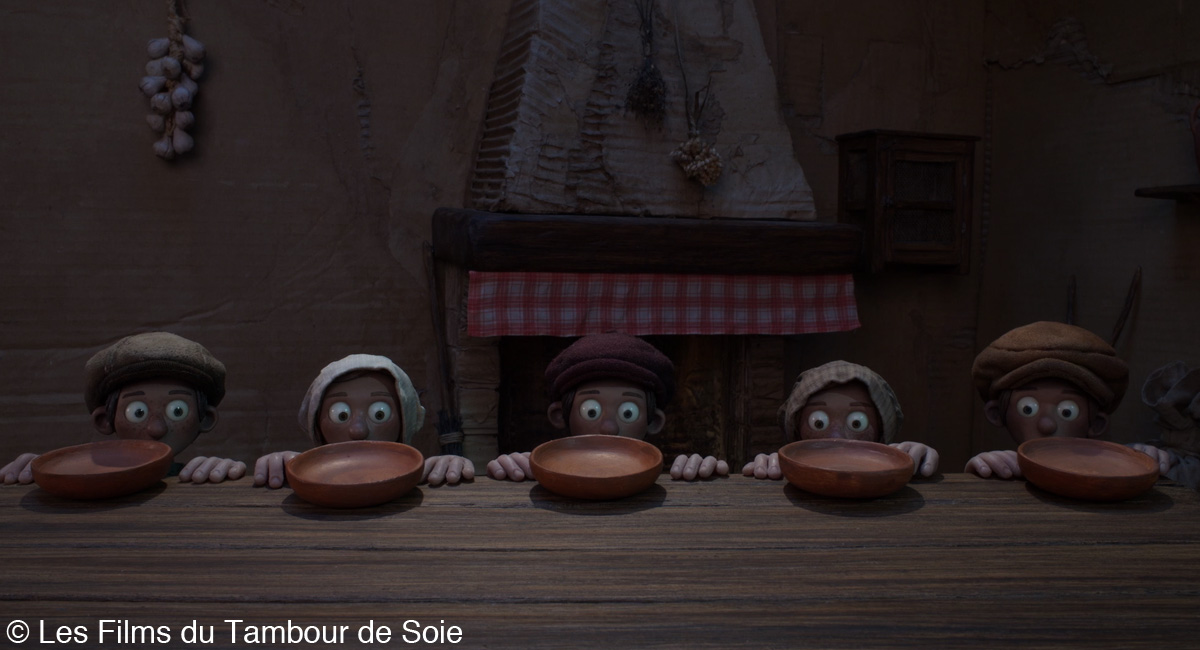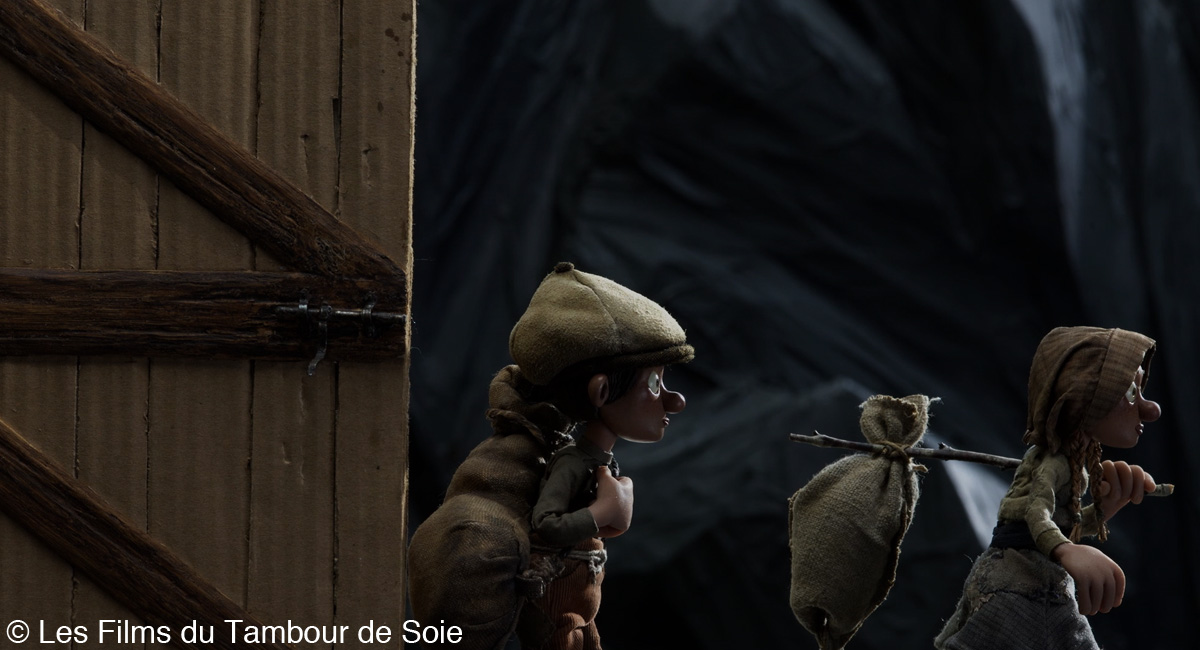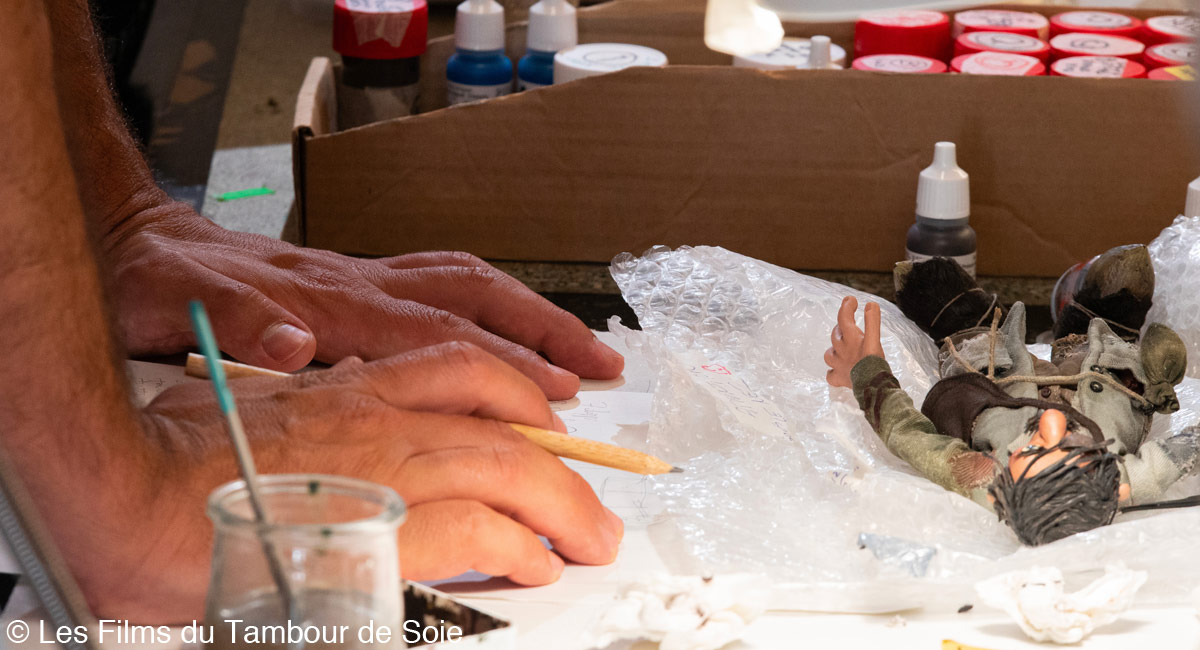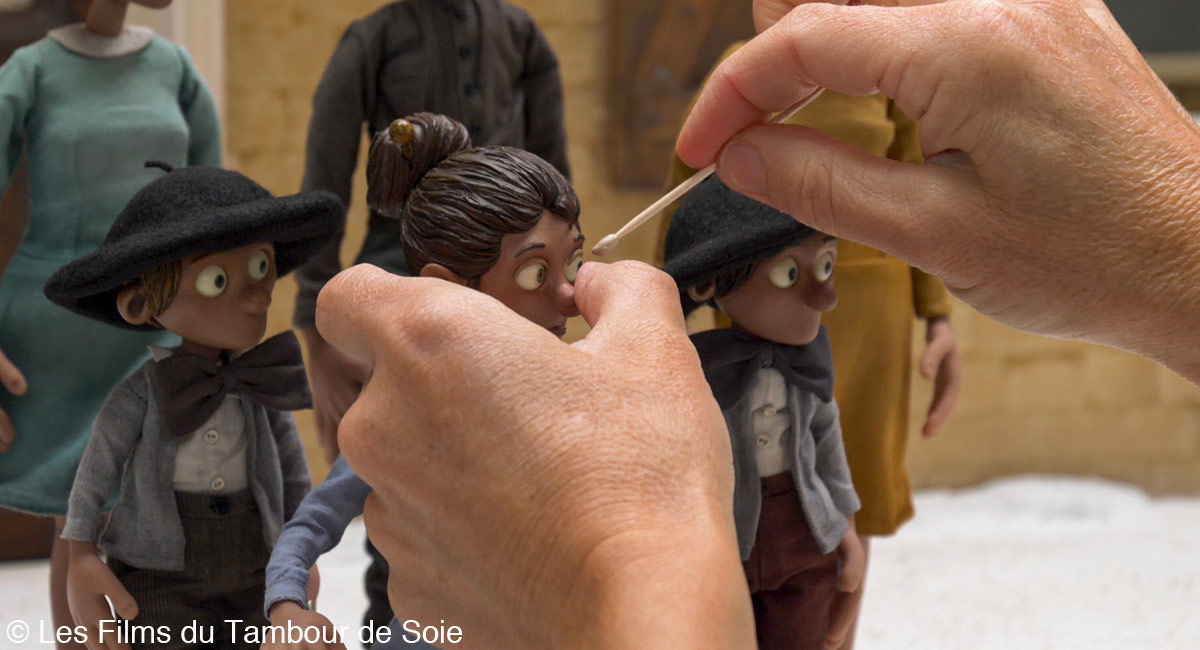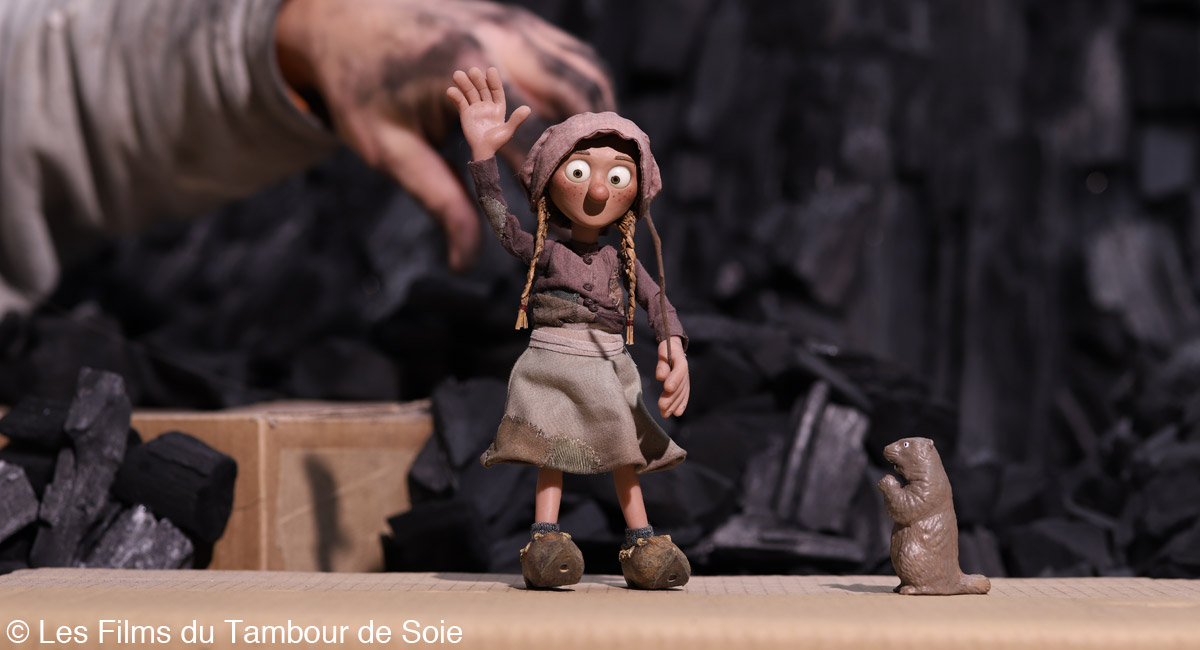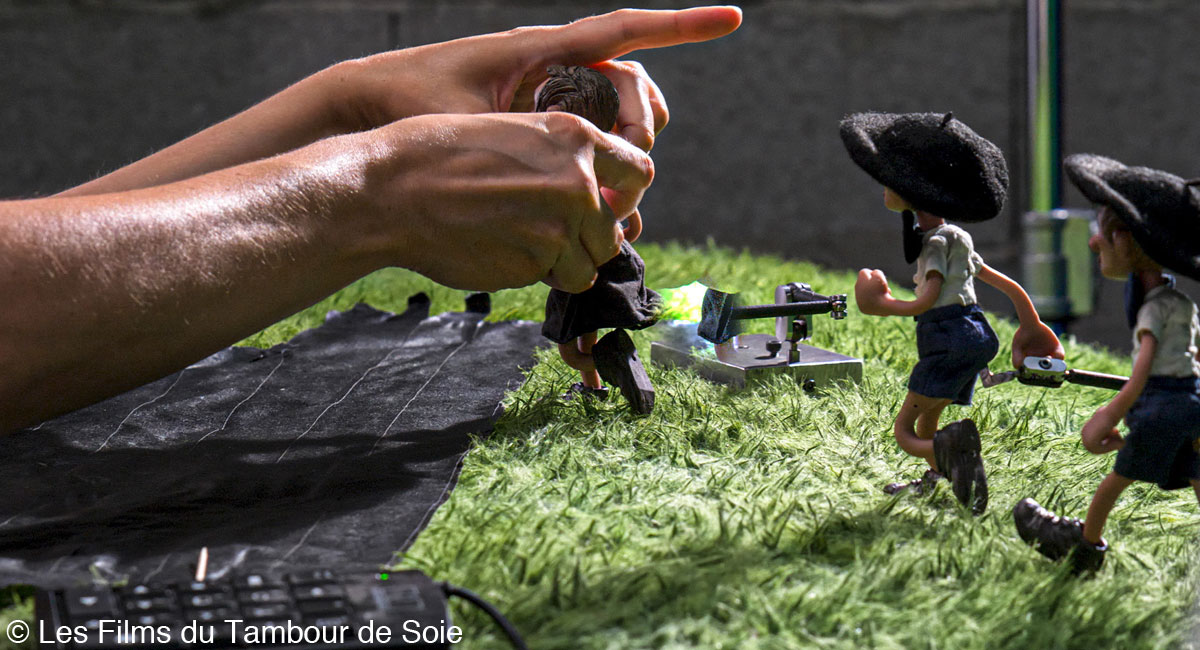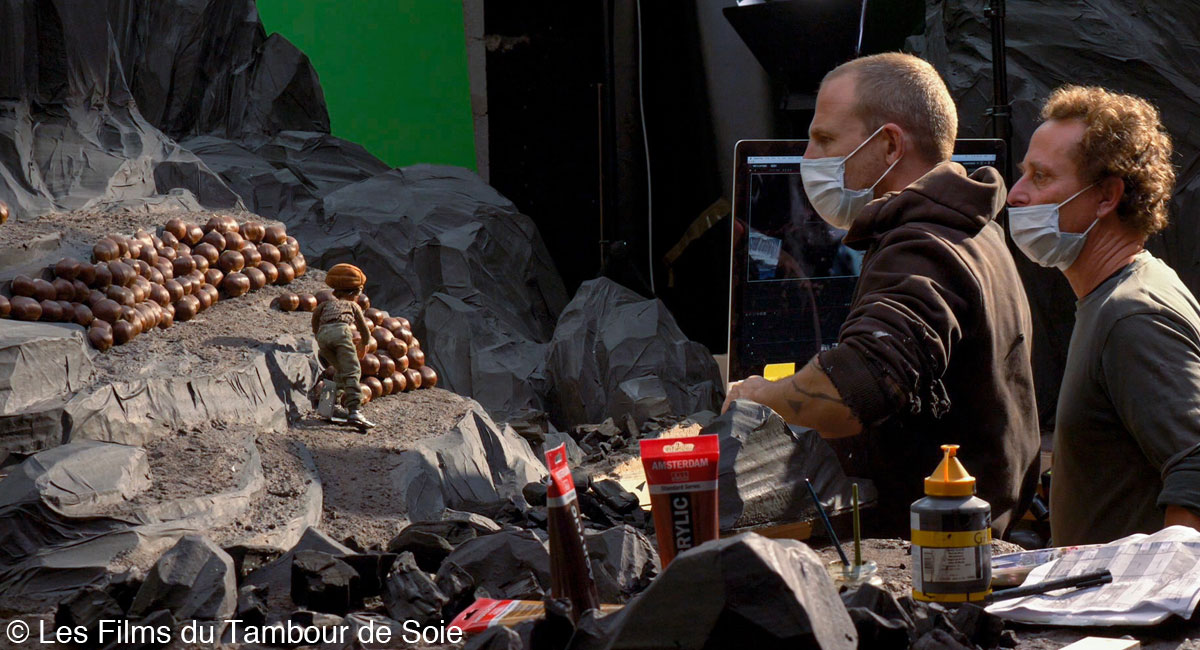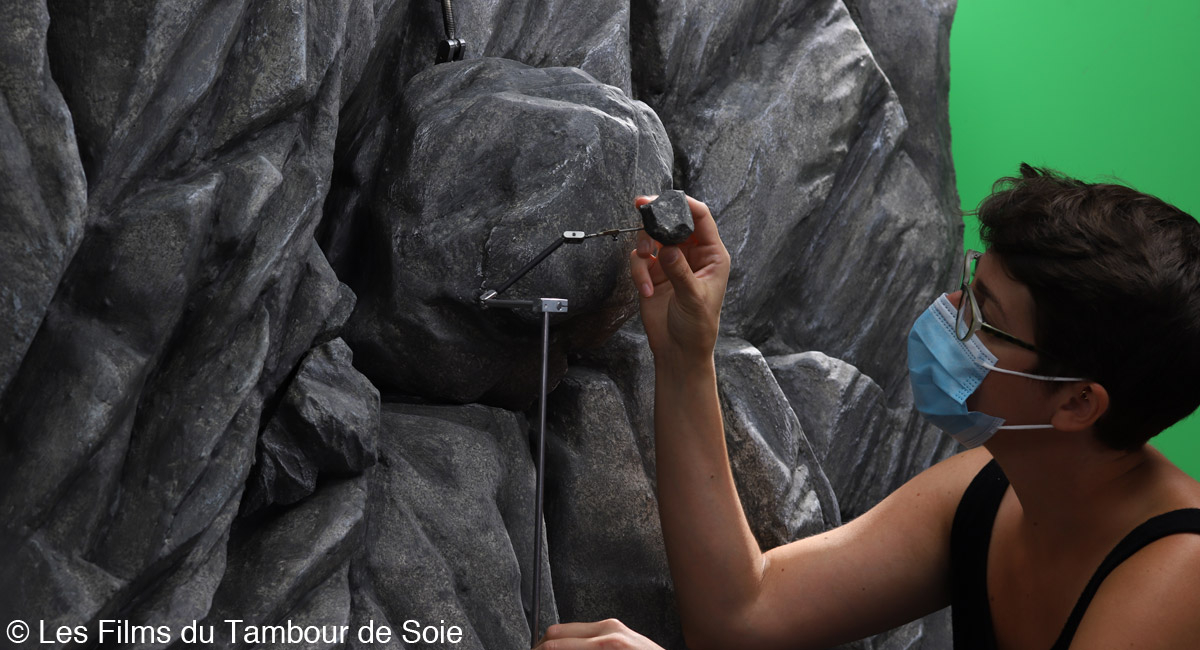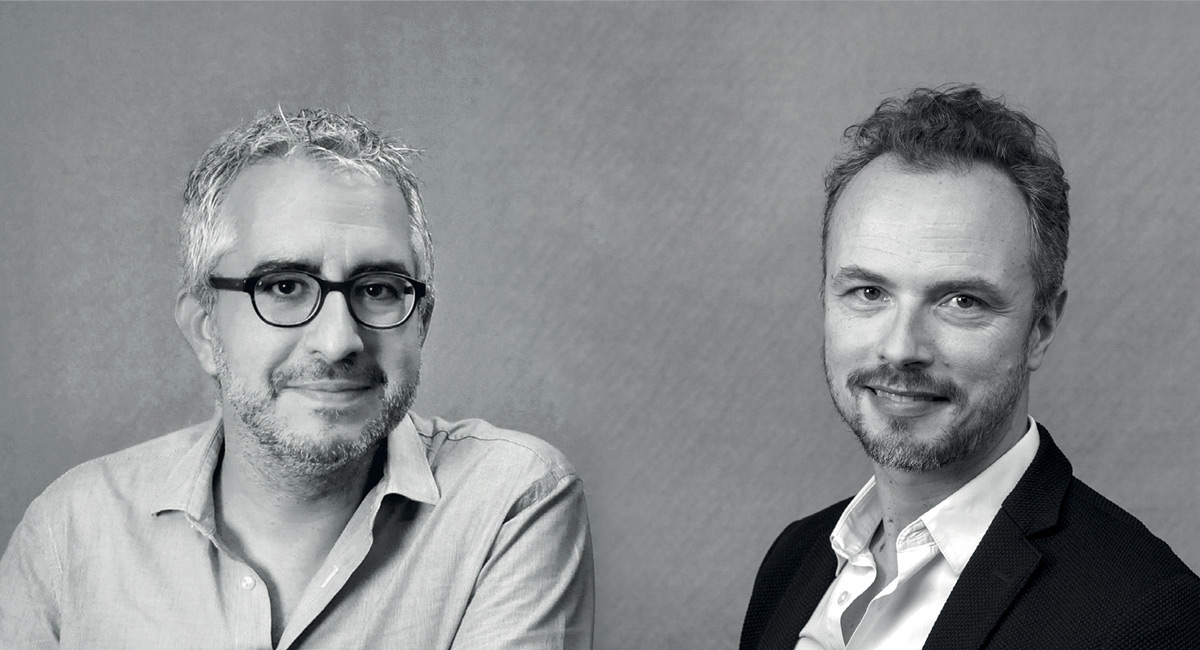Synopsis
Early 20th century, in the Ughetto family’s home village, Ughettera, Northern Italy. Life in the region had become very difficult and the Ughettos dreamed of a better life abroad. Legend has it that Luigi Ughetto crossed the Alps and started a new life in France, thus changing his beloved family’s destiny forever. His grandson retraces their story.
Film Credit
Director: Alain Ughetto
Scriptwriters: Alain Ughetto, Alexis Galmot, and Anne Paschetta
Producers: Alexandre Cornu, Jean-François Le Corre, Mathieu Courtois, Ilan Urroz, Manuel Poutte, Enrica Capra, Luis Correia, Nicolas Burlet
Production companies: Les Films du Tambour de Soie (France), Vivement Lundi ! (France), Foliascope (France), Lux Fugit Film (Belgium), Graffiti Film (Italy), Ocidental Filmes (Portugal), Nadasdy Film (Switzerland)
Music: Nicola Piovani
Technique: clay / stop-motion
Target audience: All audiences
Running time: 70 minutes
No Dogs or Italians Allowed is a stop-motion animation feature film on the life journey of an Italian immigrant Luigi Ughetto and his family. The film won the Jury Award and Gan Foundation Award for Distribution at Annecy Festival 2022.
In this film, the multi-award-winning film director Alain Ughetto tenderly tells encouraging true stories of his grandfather and his family, whose tireless efforts have brought peace to them and their next generations over many hardships and tragedies in the era of World War I and II.
We interviewed Alain about the story behind the film. We recommend that you read our previous interview with him on the film, which we did at Cartoon Movie 2019, to have a deeper understanding and appreciation of the film.
Interview with Alain Ughetto
Hideki Nagaishi (HN): Your grandparents and their family lived through the time when Europe faced many difficulties, and this 70-minute film covers their story that spans decades.
What did you take in care the most and what difficulties have you found in making this story structure well-balanced?
Alain Ughetto: I made a family investigation by asking cousins, sisters, brothers, uncles and aunts: What memories do you have of our grandfather Luigi and our grandmother Cesira? I got some stories. Some are unlikely, and some are funny.
At first, I placed these memories in chronological order between the dates of births, deaths and wars; I was thus able to retrace the path of my grandparents. Alexis Galmot (the scriptwriter) and I tried to link together these “intimate” memories. Here’s an example of a cousin’s story: “Luigi and Cesira wanted to go to America; they put all their belongings in the first boat that left, and they had to take the next boat. The first boat sank with all their belongings.” Here, the tragedy is in place. We then added a trigger to that story: “The elders who came back had told that over there, in America, dollars grew on trees and that you just had to reach out and pick them up.”
The misery at that time was great in Italy and if they were ready to believe the elders’ fables, they were also ready to leave. In the rest of the story, they have lost everything, they have nothing left, they are at first defeated, but they want to get out of it and they will get out of it.
HN: Real hands (seems to be your hands) appear in the film, crafting stage props and handing them to the characters. I felt that you are working together with your grandfather and his family, together across time.
Could you please let us know your intention of that visual element?
Alain Ughetto: These are my hands. My grandfather’s hands passed on their knowledge to my father’s hands, my father passed on his knowledge to me in my hands and today, in the film, I remember it. My hands, those of the grandson, have become a character that acts on this world, that questions and intervenes.
HN: The story is a painful one, with the characters experiencing one hardship and bereavement after another. On the other hand, I was cheered up throughout the film by the positive attitude of the main characters, who always strive to look forward, rather than being crushed by the sad reality. And this impression of mine seemed to come from the charming facial expression of the clay doll with the big round eyes, the humorous scenes that appear intermittently throughout the film, and so on. Were these your intentions in directing the film?
Alain Ughetto: The main idea that animated us was that Luigi was the friend of children, even if there are many of them. Misery is present, but they always try to get out of it, and to get out of it with their families. In the mass of memories collected, very few of them were heavy ones: above all, there was a great pride in having been a farmer, then in being a worker, and above all, in being able to feed his family through his work.
HN: I would like to hear about the music. What was your image of the best music for this film? And what did you take care in the most for the communication with the music composer?
Alain Ughetto: I was looking for music of Italian origin and essence. While listening to those composed by Nicola Piovani, I fell under the spell. Because of COVID, we communicated by Skype.
My grandmother in France wanted to be more French than the French so I never heard her speak Italian. But in her cooking: polenta, gnocchi, and being in her black clothes, she remained very Italian. I wanted the music to follow this same path, and that whatever happens in the story, Italy remains in the background, strong and present. The music is beautiful and I am very proud of it.
HN: The film deals with war and migration, two big themes that have grieved and tormented humanity for a long time, and have yet to be resolved. What do you want audience to feel, learn or think about those societal problems throughout this film?
Alain Ughetto: Above all, I wanted to bear witness to the lives of our elders. A testimony for the younger generations. Generations to whom the daily news tirelessly repeats climate change, debts, pandemics, and wars. I wanted to convey a message of hope: this is where we come from, this is how your grandfathers and grandmothers lived, this is how they resisted, this is the ordeal they went through so that we, their children and grandchildren, can simply live better than they did!


